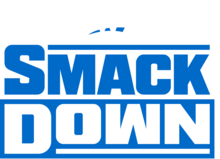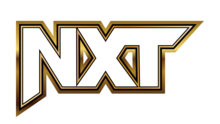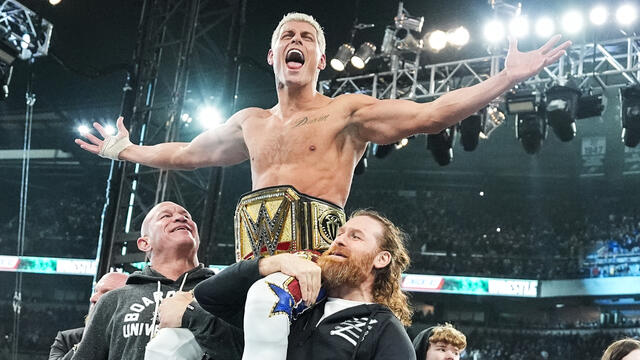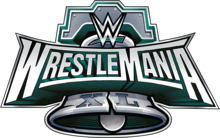
NXT coach Norman Smiley: ‘I have the best job in the world’

One of the most well-versed performers to ever step inside the ring, Norman Smiley is currently the longest-tenured coach in WWE’s developmental system. The former WCW Hardcore Champion sits down with WWE.com to discuss what it’s like to coach WWE’s future stars, what it takes to succeed in WWE and his impressive list of trainees.
WWE: How did you become a coach in WWE’s developmental system in the first place?
NORMAN SMILEY: Eight years ago in the system then known as Florida Championship Wrestling, there were only three main coaches: Dr. Tom Prichard, Steve Keirn and Billy Kidman. John Laurinaitis was in charge of FCW, which was based in Tampa, Fla., and was looking for an additional trainer. It just so happened that I had recently returned from a tour of Korea with Billy Kidman, who was working in FCW, so he mentioned my name. There were several people who spoke with John at the time, including MVP, Rey Mysterio and Chris Jericho, who all claimed that I would be perfect for the position. I recall visiting Tampa for a week to meet the guys and see the facility. I had known Dusty Rhodes, Steve Keirn and Tom Prichard for years, but being introduced to 60 talented students all at the same time was intimidating!
Watch Norman Smiley matches on WWE Network | Classic Norman Smiley photos
WWE: Why did the opportunity to train future Superstars and Divas interest you?
SMILEY: Growing up as a child, my dream was to always work for the WWE and participate in a WrestleMania. When the opportunity was offered to me to become a trainer, I was close to 43 years old. I still felt that I was more than capable of performing in the ring. However, at this point I felt I would have more longevity as a trainer, plus I had so much more to offer with my international experience.
WWE: What has it been like for you to train so many different personalities over the years?
SMILEY: My first day as a trainer was somewhat confusing. I believe the first practice match I ever saw was Tyson Kidd vs. Dolph Ziggler. Naturally, the match was very, very good. I thought to myself, “What could I possibly teach these two stars besides the Big Wiggle?” As time went on, I realized that Kidd and Ziggler were two of the most talented performers on the roster. It was then brought to my attention that there were many students that had zero experience. So in essence, depending on their level, I was teaching simple math, like “What is two plus two?” And for the more advanced, I was teaching trigonometry. [Laughs]
WWE: Who are some of the names you’ve had the opportunity to coach in the ring?
SMILEY: Well, after working for the WWE for almost eight years, you can imagine the quantity and quality of some of the students that I have worked with. There have been many students who came into developmental with prior experience, so I can't make a claim to exactly training them, but I would show them different options and enforce how we do things in the WWE. Roman Reigns, Bo Dallas, Summer Rae, Big E, Konnor, who I have known for many years, and David Otunga I pretty much trained from day one. Sheamus, Alicia Fox, Adam Rose, King Barrett, just to name a few, are students that I spent time with helping them to adjust to the WWE style. I would estimate that I have worked with at least 80 percent of the present main roster to some degree.
WWE.COM: Describe the evolution of the industry from your perspective.
SMILEY: It has never been more evident than now that we are a television company, and it’s not a "rasslin’ show" that we produce. There is not one facet that is overlooked to give the WWE Universe the best possible product. One of the many hats I wear is that of a producer. As I am going over a match with my students, I always have in the back of my mind what would be the best camera angle to view this hold or move. Students at NXT have to be prepared for everything. Our guys and girls must all spend time in the gym, improve their speaking skills, and develop a character, all while learning the moves between the ropes. It is a full-time job with sacrifice, but it is also a dream job.
WWE.COM: What is the hardest part about being a coach?
SMILEY: I feel for those students that join NXT with no experience. Sometimes they think it will be an easy task to learn and that it is not as physical as one would think. Many students have a rude awakening of how difficult and physical it is to perform in the WWE. A professional in any sport can make it look easy. Tiger Woods, Kobe Bryant and Serena Williams all make their respective sports look easy. However, all of these athletes have been playing their respective sports, every day, from the age of 5 or 6. WWE takes years to learn as well. John Cena can do a seven-minute promo, alone, live on television in front of 20,000 people and make it interesting and exciting. Why? Because he has done it thousands of times and he is a natural! I find that some students can be impatient and request an opportunity that they are not ready for.
WWE.COM: I’m sure you have seen a variety of backgrounds at the Performance Center.
SMILEY: Oh, definitely. I have seen all walks of life given an opportunity in developmental: fitness models, former NBA and NFL players, high-level college athletes, MMA fighters, a bail bonds man, an arm wrestling champion, and second- and third-generation athletes. One thing that I would like to add is that a majority of these students are college educated, with degrees.
Meet NXT recruit Levis Valenzuela Jr. | Q&A with NXT rookie Thomas Kingdon
WWE.COM: Is there a particular formula that increases the chances that someone will make it?
SMILEY: I think at this stage, it is very difficult to see who will achieve any kind of success. Granted, everyone enters NXT stating how bad they want it and that they want to be World Champion and wrestle at WrestleMania. Ultimately, time and hard work are the determining factors. There are so many elements involved in creating a “star,” including some luck.
WWE.COM: What is your daily schedule like?
SMILEY: My schedule has slowed down a bit since we moved from our location in Tampa to Orlando, Fla. I have worked as much as 14 hours in one day and this happened pretty often. Nobody ever told me I had to do a 14-hour day, but if a student was there and needed help, I would assist them. I tried to always make myself available for those who may need me. Now at the WWE Performance Center, we have several coaches, headed by Matt Bloom. I have a more structured day now. Hours can fly by as I work with different students in different areas, so my days can vary.
WWE.COM: Are there any funny stories that stick out from your years of training up and coming talents?
SMILEY: Without mentioning any names, I was once teaching a class on simple tag team psychology and we were walking through basic scenarios. I interjected myself as the fourth member on one of the teams for the match. I structured a certain tactic where I had my opponent in my corner, lying next to the ropes. I told my partner, “When I distract the referee, hit him!” I proceeded to kick my opponent while holding on to the ropes, which caused the referee to instruct me to step back and allow my opponent up. Well, it was at this point that my partner literally reached over the ropes and hit the referee! Though this is a funny story, it made me realize that one can never assume. Naturally, those of us who grew up watching the WWE will have some idea of what we are trying to achieve. There is no crime in being inexperienced, as everyone starts from zero. However, I know that I must break certain aspects down several times and make it simple for students to understand.
WWE Shows Latest Results
Raw results, April 15, 2024: Chad Gable viciously attacks Sami Zayn after losing to Zayn in Intercontinental Title Match!
Full ResultsSmackDown results, April 12, 2024: LA Knight and AJ Styles earn victories for a chance to challenge Cody Rhodes at WWE Backlash!
Full ResultsWWE NXT results, April 16, 2024: Trick Williams defeats Carmelo Hayes in a Steel Cage Match
Full Results














